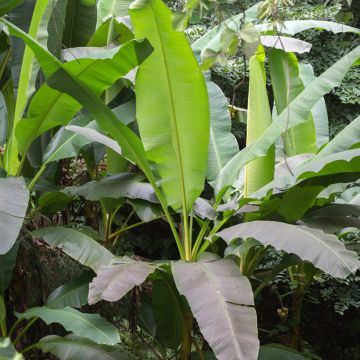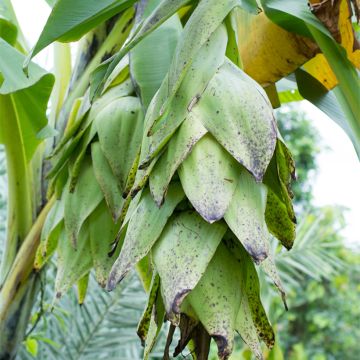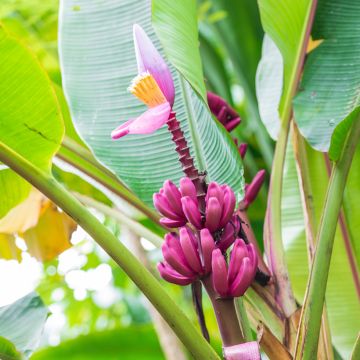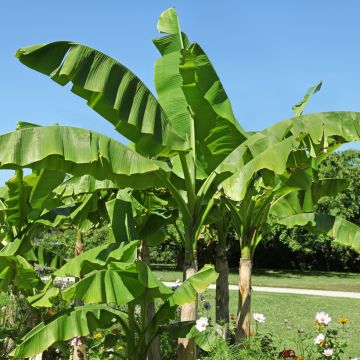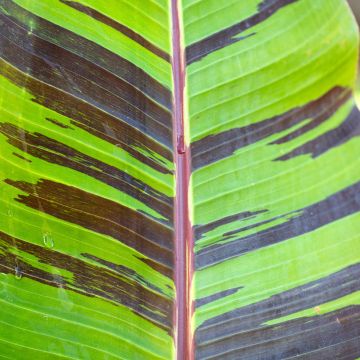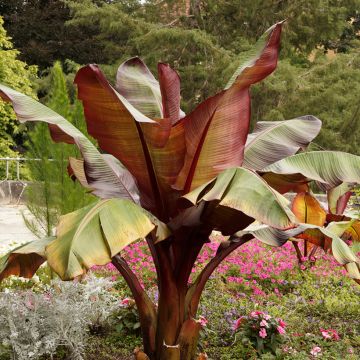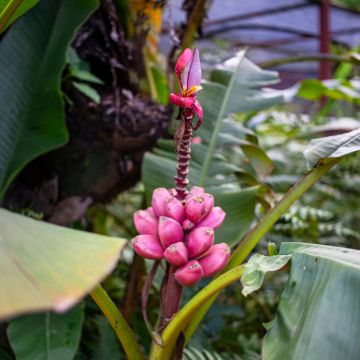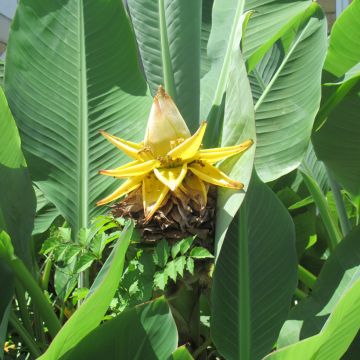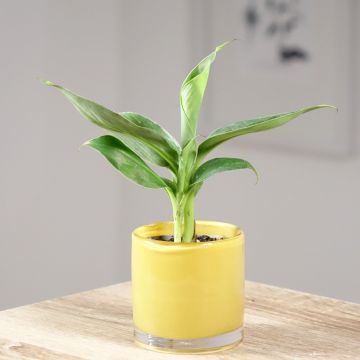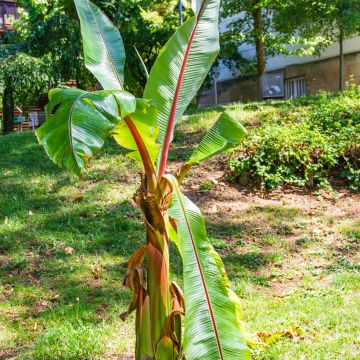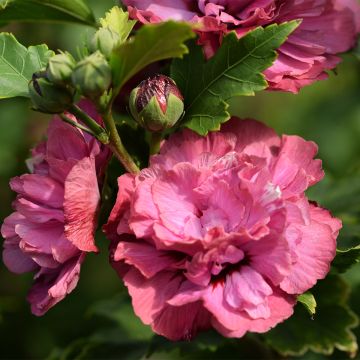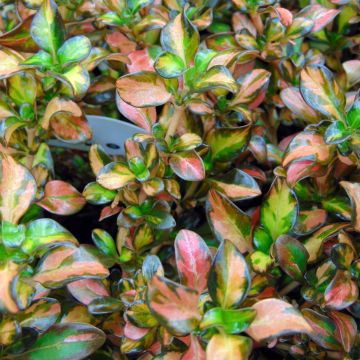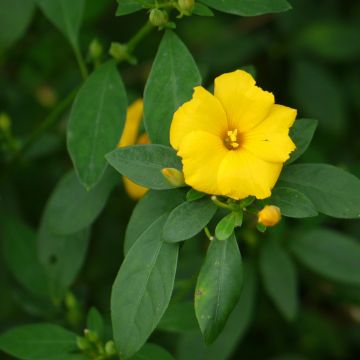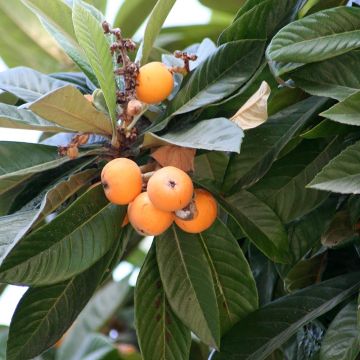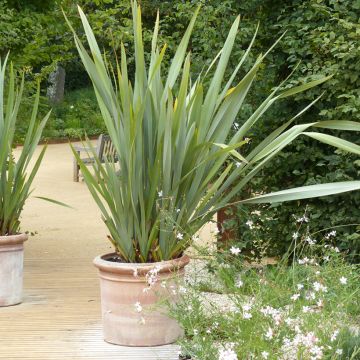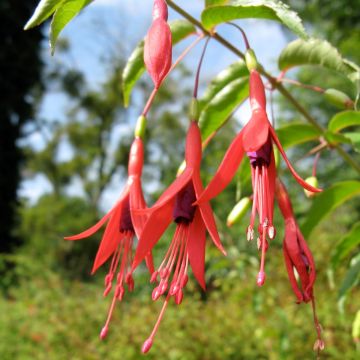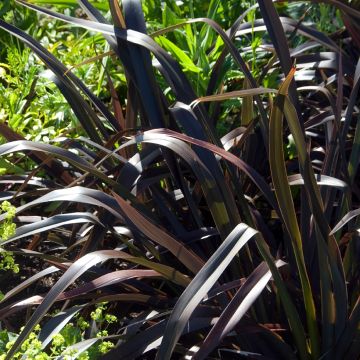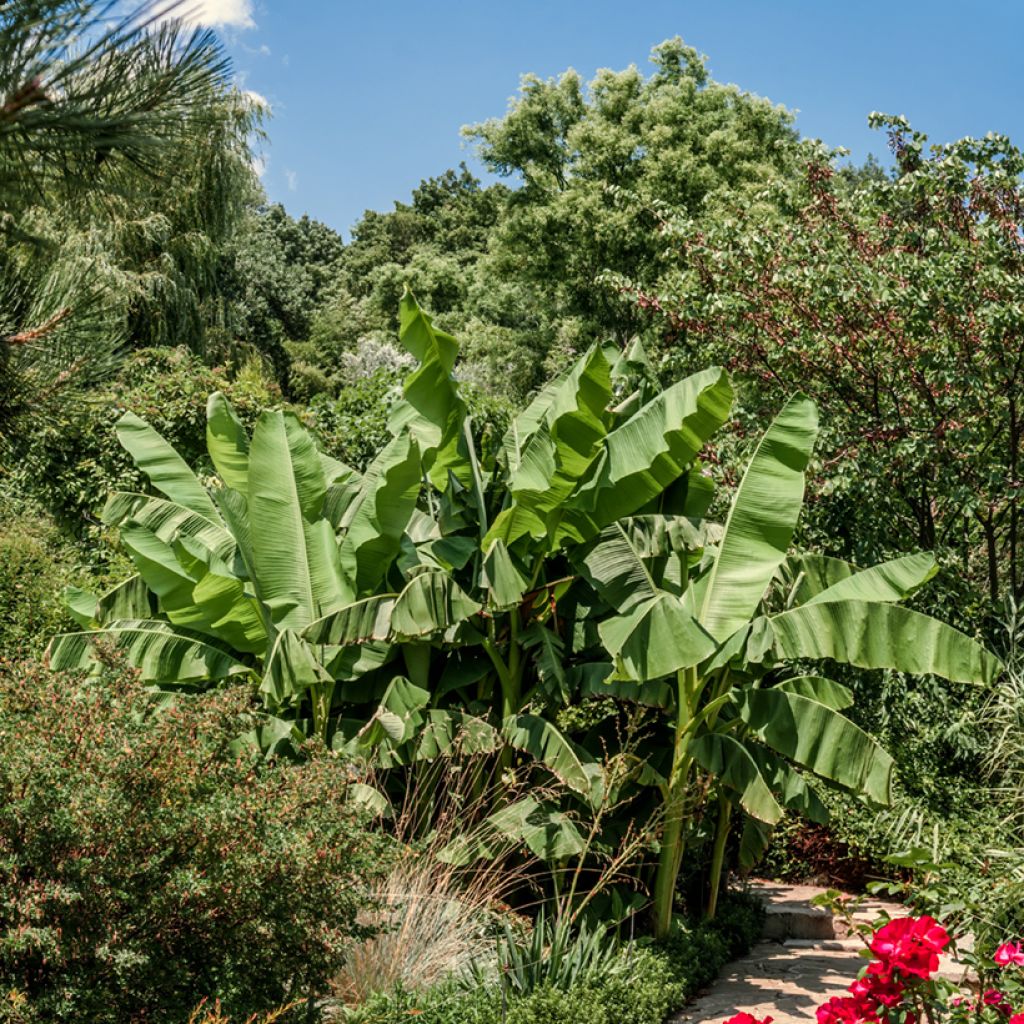

Musa basjoo Dajiao - Bananier du Japon
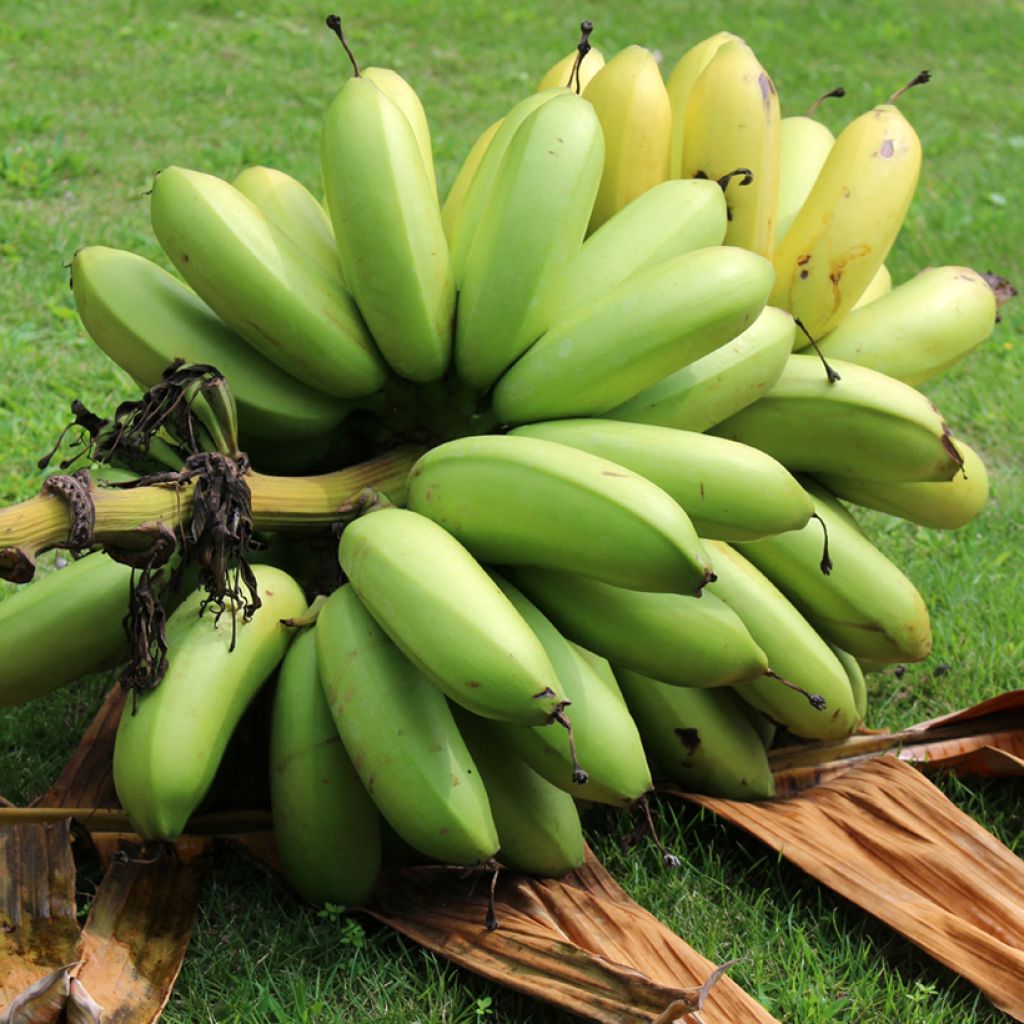

Musa basjoo Dajiao - Bananier du Japon
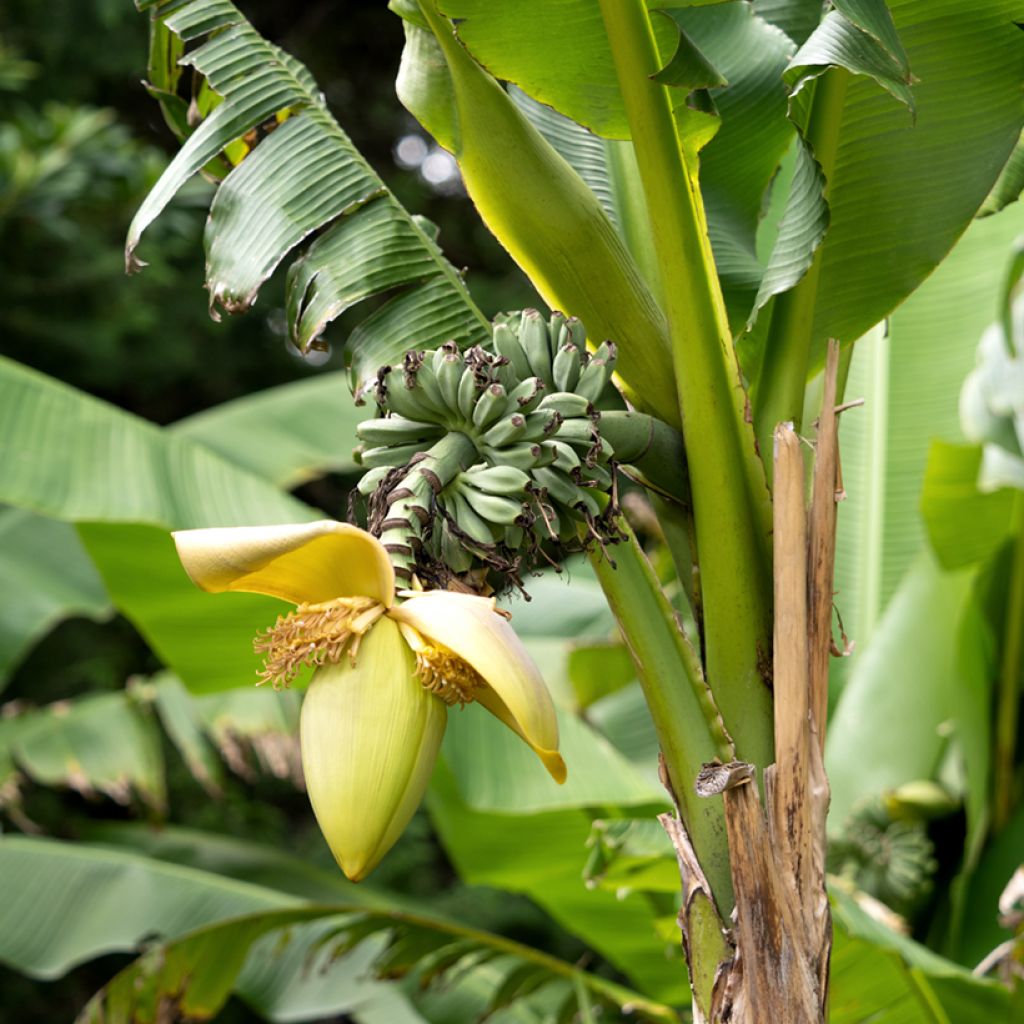

Musa basjoo Dajiao - Bananier du Japon
Musa basjoo Dajiao - Hardy Banana
Musa x Dajiao
Japanese Banana, Hardy Banana, Fibre Banana
Beautiful, healthy banana trees. Careful packaging, fast shipping. Complete satisfaction.
Marie , 09/02/2024
Special offer!
Receive a €20 voucher for any order over €90 (excluding delivery costs, credit notes, and plastic-free options)!
1- Add your favorite plants to your cart.
2- Once you have reached €90, confirm your order (you can even choose the delivery date!).
3- As soon as your order is shipped, you will receive an email containing your voucher code, valid for 3 months (90 days).
Your voucher is unique and can only be used once, for any order with a minimum value of €20, excluding delivery costs.
Can be combined with other current offers, non-divisible and non-refundable.
Home or relay delivery (depending on size and destination)
Schedule delivery date,
and select date in basket
This plant carries a 24 months recovery warranty
More information
We guarantee the quality of our plants for a full growing cycle, and will replace at our expense any plant that fails to recover under normal climatic and planting conditions.

Would this plant suit my garden?
Set up your Plantfit profile →
Description
Musa basjoo 'Dajiao' will allow you to produce your own edible bananas, either directly in the garden in a mild climate, or by cultivating it in a container to overwinter indoors. Hardy to about -7°C (19.4°F) (an established plant can withstand less and regrow from the stump, but only 2-year-old plants can bear fruit), this fruiting banana tree truly lives up to its name by rewarding us with fragrant and edible fruits. This variety not only creates a tropical scene, but also delights us with its bananas! It should be grown in moist soil, as this banana tree is water-hungry. Position it in full sun, sheltered from strong winds.
Musa basjoo (synonym Musa japonica) is not native to Japan, but to China. It originates from open woods and forest edges with a tropical to subtropical, mild and humid climate. It is an herbaceous plant that reaches the size of a tree, growing several metres tall for most varieties. The banana tree does not have a trunk, but a stipe formed by overlapping leaf sheaths. It belongs to the Musaceae family, which includes only 3 genera, all with a banana-like appearance: Musa (with numerous species and varieties), Ensete (with only 7 species), and Musella lasiocarpa, a dwarf plant known for its magnificent yellow decorative flowers. Musa basjoo is one of the hardiest species among banana trees; its foliage freezes quickly, but the stump can regrow after frost down to -10°C (14°F), which explains its success as an ornamental plant.
The 'Dajiao' variety is a hybrid resulting from the cross-breeding of Musa balbisiana and Musa sikkimensis, also originating from China. It grows rapidly and, from the second year of planting, forms a plant about 3m (10ft) high and wide, with large leaves characteristic of the genus. In 'Dajiao', the leaves have red reflections on the underside, inherited from its parent M. sikkimensis. From the second year of cultivation, it produces yellow flowers with a purple bract, between May-June and August-September, which will provide a real bunch of bananas (ripe about 4 to 5 months after flowering). Although the variety's name means "big banana" (da = big in Chinese, and xiang jiao = banana), these fruits are nevertheless smaller than those we usually buy in stores, but they are fragrant and have a very good taste.
This is the hardiest edible variety, as it can withstand temperatures around -7°C (19.4°F) or even lower. However, be careful! If it freezes and regrows from the stump, you won't have any bananas in the first year; the stipe must be at least 2 years old to produce. 'Dajiao' can therefore be cultivated outside in mild climates. In colder regions, grow it in a pot to overwinter indoors (provided you have a suitable space, as it will reach about 2.5m (8ft) in a container). In areas allowing its cultivation in the ground, it will need a sunny location, preferably sheltered from the wind that could damage its large foliage, and in moist soil, with regular watering during the growing season. In these conditions, it will form a clump about 3m(10ft) in all directions, giving your garden a tropical look.
There's nothing like a banana tree to bring exoticism to the garden, and thanks to 'Dajiao', you can even produce your own tropical fruits! To perfect your exotic scene, plant it with other characteristic plants, such as palm trees like Washingtonia filifera, with its large palmate leaves and powerful stipe. Butia capitata, with its elegant long pinnate leaves, will also be a very good choice, especially since you can enjoy its fruits. In mild climates, you can also combine visual pleasure with gustatory attraction by planting citrus trees from the wide range of Citrus available.
Report an error about the product description
Musa basjoo Dajiao - Hardy Banana in pictures
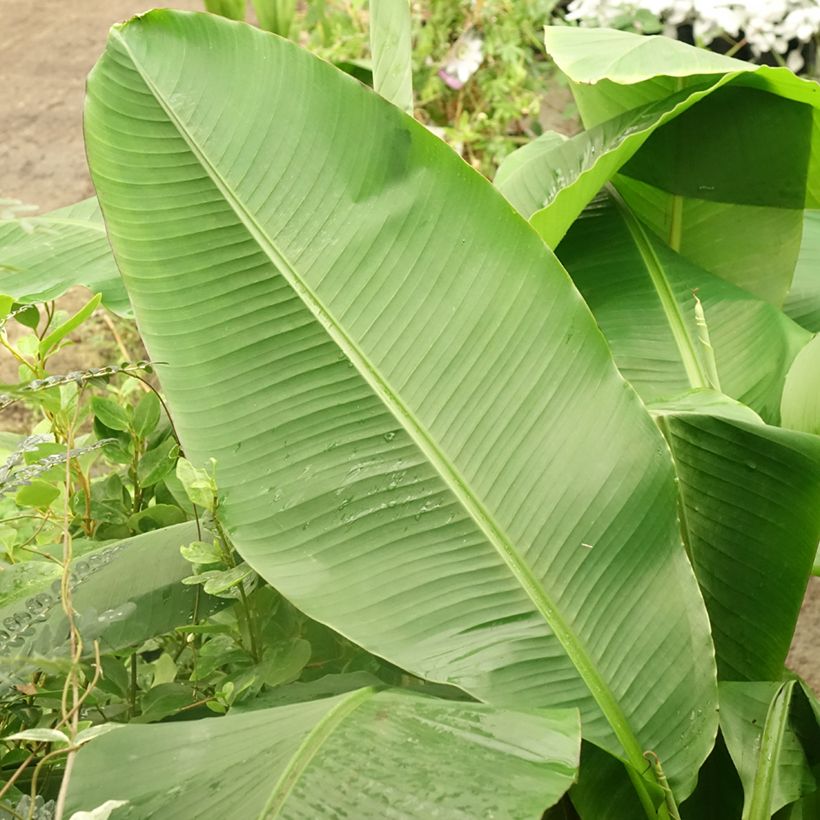

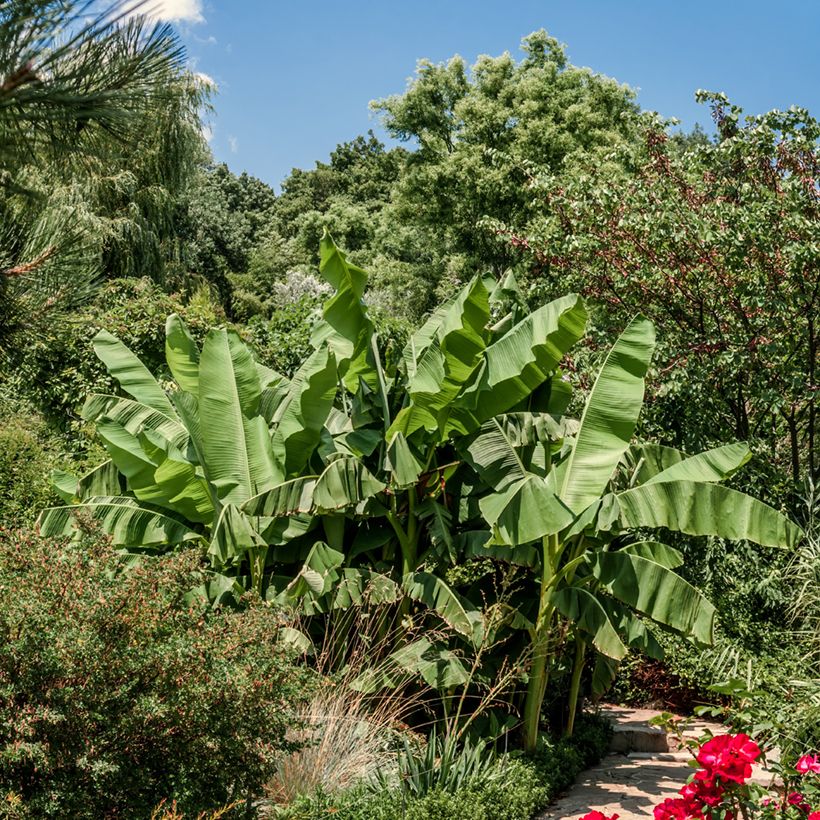

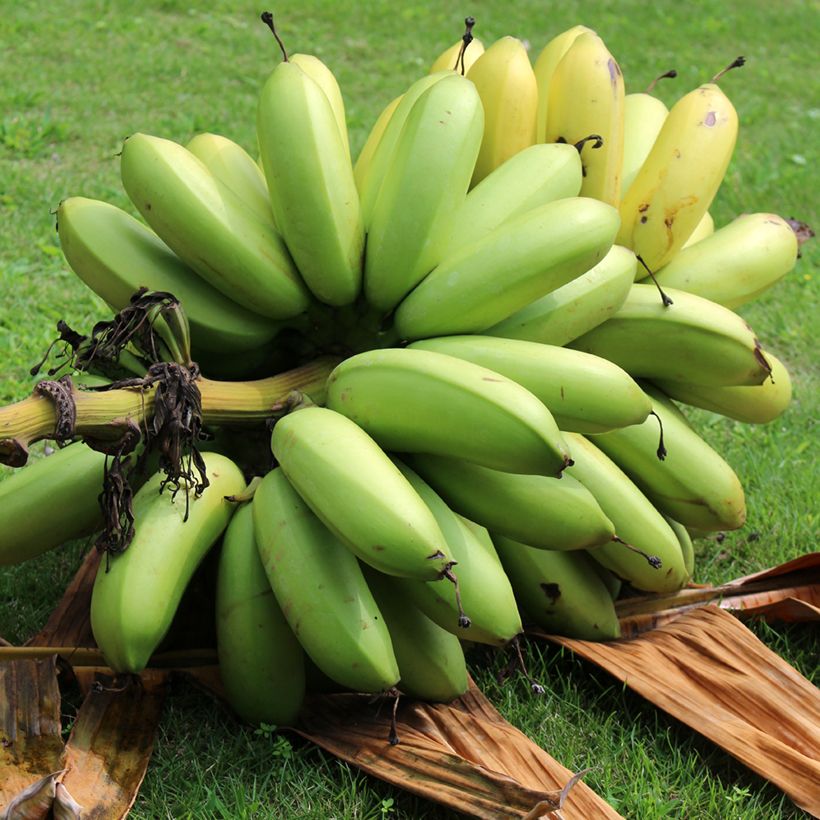

Plant habit
Flowering
Foliage
Botanical data
Musa
x
Dajiao
Musaceae
Japanese Banana, Hardy Banana, Fibre Banana
Cultivar or hybrid
Other Musa - Banana tree
View all →Planting and care
Plant in spring or summer. Choose a sunny and sheltered location, as the wind can tear the leaves. Soak the root ball in water for about fifteen minutes before planting to moisten it well. Dig a hole (3 times the volume of the root ball), and place a layer of gravel at the bottom to facilitate drainage. Cover with a mixture of garden soil, compost or potting soil, and sand. Place the root ball and cover with soil. Firmly tamp down and water thoroughly.
In spring and summer, regularly apply organic fertiliser. Water regularly in summer (about 2 to 3 times a week). The Banana tree is resistant to diseases and pests.
In winter, cut back the leaves along the trunk and protect the stump by installing a wire mesh filled with dead leaves along the pseudo-trunk. Cover the top with a winter protection cloth to prevent excessive moisture. It will regrow from the base or from the shoots formed around the base. This protection is not necessary in very mild regions.
Pot cultivation is possible in cooler regions, taking into account its future height (2.5 to 3m (8 to 10ft) tall). Repot approximately every 2 years. Bring the pot indoors before the first frost to a bright location without direct sunlight. Mist the foliage if necessary or fill a saucer with moist clay balls as the Banana tree, a tropical plant, appreciates humid environments.
Planting period
Intended location
Care
-
, onOrder confirmed
Reply from on Promesse de fleurs
Similar products
Haven't found what you were looking for?
Hardiness is the lowest winter temperature a plant can endure without suffering serious damage or even dying. However, hardiness is affected by location (a sheltered area, such as a patio), protection (winter cover) and soil type (hardiness is improved by well-drained soil).

Photo Sharing Terms & Conditions
In order to encourage gardeners to interact and share their experiences, Promesse de fleurs offers various media enabling content to be uploaded onto its Site - in particular via the ‘Photo sharing’ module.
The User agrees to refrain from:
- Posting any content that is illegal, prejudicial, insulting, racist, inciteful to hatred, revisionist, contrary to public decency, that infringes on privacy or on the privacy rights of third parties, in particular the publicity rights of persons and goods, intellectual property rights, or the right to privacy.
- Submitting content on behalf of a third party;
- Impersonate the identity of a third party and/or publish any personal information about a third party;
In general, the User undertakes to refrain from any unethical behaviour.
All Content (in particular text, comments, files, images, photos, videos, creative works, etc.), which may be subject to property or intellectual property rights, image or other private rights, shall remain the property of the User, subject to the limited rights granted by the terms of the licence granted by Promesse de fleurs as stated below. Users are at liberty to publish or not to publish such Content on the Site, notably via the ‘Photo Sharing’ facility, and accept that this Content shall be made public and freely accessible, notably on the Internet.
Users further acknowledge, undertake to have ,and guarantee that they hold all necessary rights and permissions to publish such material on the Site, in particular with regard to the legislation in force pertaining to any privacy, property, intellectual property, image, or contractual rights, or rights of any other nature. By publishing such Content on the Site, Users acknowledge accepting full liability as publishers of the Content within the meaning of the law, and grant Promesse de fleurs, free of charge, an inclusive, worldwide licence for the said Content for the entire duration of its publication, including all reproduction, representation, up/downloading, displaying, performing, transmission, and storage rights.
Users also grant permission for their name to be linked to the Content and accept that this link may not always be made available.
By engaging in posting material, Users consent to their Content becoming automatically accessible on the Internet, in particular on other sites and/or blogs and/or web pages of the Promesse de fleurs site, including in particular social pages and the Promesse de fleurs catalogue.
Users may secure the removal of entrusted content free of charge by issuing a simple request via our contact form.
The flowering period indicated on our website applies to countries and regions located in USDA zone 8 (France, the United Kingdom, Ireland, the Netherlands, etc.)
It will vary according to where you live:
- In zones 9 to 10 (Italy, Spain, Greece, etc.), flowering will occur about 2 to 4 weeks earlier.
- In zones 6 to 7 (Germany, Poland, Slovenia, and lower mountainous regions), flowering will be delayed by 2 to 3 weeks.
- In zone 5 (Central Europe, Scandinavia), blooming will be delayed by 3 to 5 weeks.
In temperate climates, pruning of spring-flowering shrubs (forsythia, spireas, etc.) should be done just after flowering.
Pruning of summer-flowering shrubs (Indian Lilac, Perovskia, etc.) can be done in winter or spring.
In cold regions as well as with frost-sensitive plants, avoid pruning too early when severe frosts may still occur.
The planting period indicated on our website applies to countries and regions located in USDA zone 8 (France, United Kingdom, Ireland, Netherlands).
It will vary according to where you live:
- In Mediterranean zones (Marseille, Madrid, Milan, etc.), autumn and winter are the best planting periods.
- In continental zones (Strasbourg, Munich, Vienna, etc.), delay planting by 2 to 3 weeks in spring and bring it forward by 2 to 4 weeks in autumn.
- In mountainous regions (the Alps, Pyrenees, Carpathians, etc.), it is best to plant in late spring (May-June) or late summer (August-September).
The harvesting period indicated on our website applies to countries and regions in USDA zone 8 (France, England, Ireland, the Netherlands).
In colder areas (Scandinavia, Poland, Austria...) fruit and vegetable harvests are likely to be delayed by 3-4 weeks.
In warmer areas (Italy, Spain, Greece, etc.), harvesting will probably take place earlier, depending on weather conditions.
The sowing periods indicated on our website apply to countries and regions within USDA Zone 8 (France, UK, Ireland, Netherlands).
In colder areas (Scandinavia, Poland, Austria...), delay any outdoor sowing by 3-4 weeks, or sow under glass.
In warmer climes (Italy, Spain, Greece, etc.), bring outdoor sowing forward by a few weeks.






























